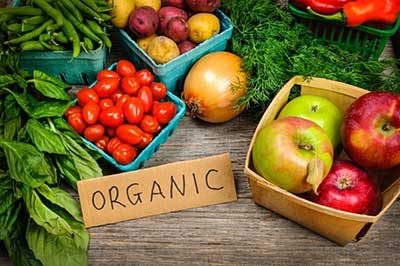Relevance: GS-3: Agriculture, Conservation, Food processing and related industries in India- scope and significance.
Key phrases: Organic product, certification, EU, USDA, AEPDA, Pesticide, agency.
Why in News?
- With the European Union blacklisting five Indian organic certification agencies and concerns being raised over the country’s process, India’s organic exports may not achieve a 10-fold increase in next five years unless the Union government takes stringent measures to ensure quality, according to experts.
What are Organic products?
- Organic products are grown under a system of agriculture without the use of chemical fertilizers and pesticides with an environmentally and socially responsible approach.
- This is a method of farming that works at grass root level preserving the reproductive and regenerative capacity of the soil, good plant nutrition, and sound soil management, produces nutritious food rich in vitality which has resistance to diseases.
- India is bestowed with lot of potential to produce all varieties of organic products due to its various agro climatic conditions.
- In several parts of the country, the inherited tradition of organic farming is an added advantage. This holds promise for the organic producers to tap the market which is growing steadily in the domestic and export sector.
- As per the available statistics, India's rank 8th in terms of World's Organic Agricultural land and 1st in terms of total number of producers as per 2020 data.
Certification of Organic Product in India:
- India Organic is a certification mark for organically farmed food products manufactured in India. The certification mark certifies that an organic food product conforms to the National Standards for Organic Products established in 2000.
- Those standards ensures that the product or the raw materials used in the product were: grown through organic farming, without the use of chemical fertilizers, pesticides, or induced hormones.
- The certification is issued by testing centres accredited by the APEDA under the National Program for Organic Production of the Government of India.
- The APEDA, Ministry of Commerce & Industries, Government of India is implementing the National Programme for Organic Production (NPOP).
- The programme involves the accreditation of Certification Bodies, standards for organic production, promotion of organic farming and marketing etc.
- The NPOP standards for production and accreditation system have been recognized by European Commission and Switzerland for unprocessed plant products as equivalent to their country standards.
- With these recognitions, Indian organic products duly certified by the accredited certification bodies of India are accepted by the importing countries. APEDA is also in the process of negotiation with South Korea, Taiwan, Canada, Japan etc.
Growth in India’s organic product export:
- Export of organic products from India grew 51 per cent to a record $1.04 billion in dollar terms during the 2020-21 fiscal compared with the previous fiscal. The increase has come after organic products shipments dropped by nine per cent to $599 million in 2019-20 from $ 614 in 2018-19.
- According to a report by US Department of Agriculture (USDA), India’s organic products market - food and beverages, health and wellness, beauty and personal care and textiles – are estimated to grow to $10.1 billion by 2026, s against $1.04 billion in 2020-21.

Challenges to Export of India Organic product:
- The biggest challenge in organic products marketing is assured product integrity. Without traceability and use of block chain technology it will be very difficult to win consumer confidence.
- Challenges related to India’s organic control system and increased incidences of fraud continue to impact the credibility of India’s organic sector.
- The problem with regard to organic certification is that loopholes in the system are taken advantage of by unscrupulous elements.
- Maintaining sustainability in the global economy and balancing organic principles with commercial imperatives. Ex: APEDA in October last year had derecognised five firms by suspending accreditation to Aditi Organic Certification for a year and banning four.
- Pursuing international harmonization of standards and certification.
- The guidelines for organic production, processing, transportation and certification etc are beyond the understanding of ordinary Indian farmer.
- Pesticide issues: European Union blacklisting five Indian organic certification agencies and concerns being raised over the country’s process when some shipments cleared by them failed to meet the norms for ethylene oxide (ETO) presence.
- Developing locally applicable agronomic solutions to production constraints, such as weeds, animal health and soil fertility.
Way forward:
- In the long-term, creation of a Natural and Organic Agriculture Promotion Board to perform focused and large scale activities should be the road map for boost organic product.
- For certification, traceability and use of block chain technology will be a tool to win consumer confidence. All laboratories and certification companies must be part of block chain system to avoid fake certificates and test report.
- As many as 44 per cent (or 2.32 million) of the world’s certified organic farmers are from India, the highest in the world. Still, India’s total certified organic area is about 2.3 million hectares, as against world’s total area of 72.3 million hectares.
- So there is a need to build an effective policy environment to build foreign trust in India’s organic product.
Source: The Hindu BL
Mains Question:
Q. Recently, European Union blacklisted five Indian organic certification agencies and concerns have been raised over the country’s process. In this context briefly discuss the issues raised by European Union ? What are the challenges faced in export of India’s organic products? Illustrate.









